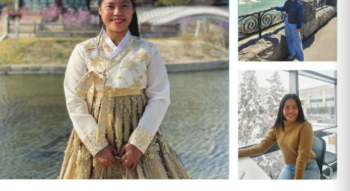
TVETs in Kenya will benefit from gender equality policies and training made possible through a partnership between Niagara College, the National Gender Equality Commission (NGEC), and Sheridan College. This partnership is in collaboration with the Mastercard Foundation and Colleges & Institutes Canada (CICan) to support the Young Africa Works in Kenya TVET program.
Young Africa Works in Kenya-TVET is a five-year program (2020-2025) and aims to increase the participation of young Kenyans, particularly women, in market-relevant skills training programs. “Achieving gender equality requires boldness, intentionality, and recognizing the unique challenges young women face. Creating safe spaces for young women to learn and work–and shifting individual perspectives, institutional practices, and overall policies–is critical to this goal. Our commitment under our Young Africa Works strategy is to ensure that 70 percent of the young people that benefit from our work are young women,” noted Daniel Hailu, regional head, Eastern and Southern Africa, Mastercard Foundation.
The three-year partnership will see Niagara College and Sheridan College assist the NGEC in Kenya to increase women’s engagement in the workforce through the development of processes and policies that promote safe learning environments, principally for female learners.
Niagara College will also partner with the NGEC to determine institutional gender frameworks and policies to enhance gender inclusion and mainstreaming. This supports NGEC’s mandate of enhancing awareness on gender and inclusion and as a constitutional mandate under article 59 (2) (b) ‘to promote gender equality and equity generally and to coordinate and facilitate gender mainstreaming in national development’ in Kenya. A change management approach will be used throughout this partnership to facilitate the implementation of gender mainstreaming within 25 TVET institutions in Kenya.
This project supports Canada’s Feminist International Assistance Policy (FIAP) and aligns with NGEC’s mandate to promote and ensure gender equality, principles of equality and non-discrimination for all persons in Kenya as provided for in the Constitution of Kenya 2010. This initiative also demonstrates Niagara College’s commitment to the provision of inclusive TVET in support of seven Sustainable Development Goals.
“Niagara College has contributed to Sustainable Development Goal number five of gender equality through global projects for more than 15 years,” said Kyla Pennie, manager of international projects, Niagara College. “We are committed to gender equity and inclusion both locally and globally, ensuring female learners have equal opportunities to access education, training, and employment. Healthy economies and communities are built by not only supporting gender equality and skills development for learners within the TVET system but also through training and policy implementation within industry, education, and government stakeholders who can sustain gender mainstreaming efforts.”
About the Mastercard Foundation
The Mastercard Foundation works with visionary organizations to enable young people in Africa and in Indigenous communities in Canada to access dignified and fulfilling work. It is one of the largest, private foundations in the world with a mission to advance learning and promote financial inclusion to create an inclusive and equitable world. The Foundation was created by Mastercard in 2006 as an independent organization with its own Board of Directors and management.
For more information on the Foundation, please visit: mastercardfdn.org.
About Young Africa Works
Young Africa Works is Mastercard Foundation’s strategy to enable 30 million young people, particularly young women, across Africa to access dignified and fulfilling work. Africa will have the largest workforce, with 375 million young people entering the labour market by 2030. With the right skills, these young people will contribute to Africa’s overall competitiveness and improve their lives and those of their communities.


